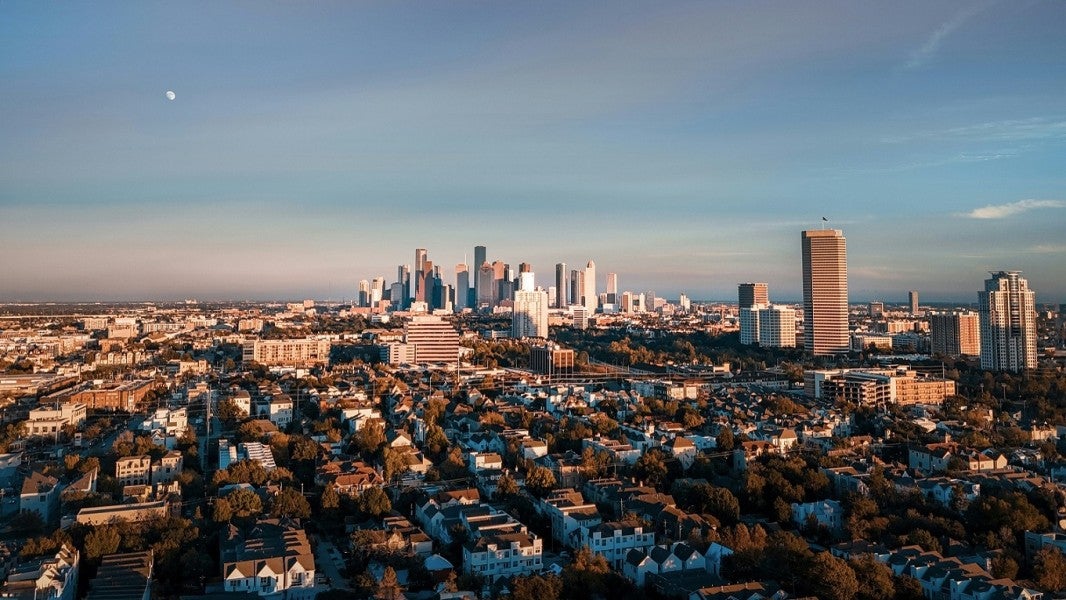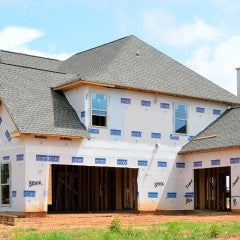This post is part of a series highlighting the findings from the 2024 Kinder Houston Area Survey.
If this question had been asked today, the survey might have recorded new concerns about natural disasters — or simply getting the lights back on. At the height of the power outage associated with the May 16 derecho, more than 900,000 households were without power despite CenterPoint Energy’s best efforts, which had restored power to over 630,000 customers within the first 72 hours of the weather disaster.
Instead, this year’s survey captured the same sorts of issues that Houstonians have been concerned about in recent years — persistent problems that are more difficult to confront than a singular disaster. The most commonly cited problem this year was crime and safety, identified by 27% of respondents. Second was housing affordability (22%), then the economy (21%). Traffic (9%) and infrastructure (8%) rounded out the top five. The responses to the question are open-ended and categorized into topic areas by the research team, which allows for general themes to be compared over the survey’s four-decade history.
“None of the biggest problems identified by residents are things that people don’t already know about. Fortunately, there are many efforts underway in neighborhoods, by community organizations and from local leaders attempting to address the challenges facing the Houston area,” said Dan Potter, senior director of research for the Kinder Institute for Urban Research.
Crime and safety is routinely a top concern among those participating in the survey. Its crescendo came in the 1990s, when as many as 75% of respondents cited it as the biggest problem facing the area. Despite its top citation, the issue of crime and safety actually dropped from a 10-year high in 2023. (Notably, even in 2018, in the aftermath of Hurricane Harvey, more Houstonians cited “crime” as the biggest problem than “flooding” in the survey.)
The percentage saying housing affordability is the biggest problem has gone up every year since 2021. Median home listing prices have largely increased in the Houston area, from less than $300,000 as recently as January 2020 to $362,675 in March 2024. Prices topped out at $399,000 in June 2022.
Coupled with rising housing costs, some respondents report that their finances are worsening. For only the second time in the last 10 surveys, more people reported their finances are getting worse (29%) than getting better (27%). Even a $400 emergency bill is getting harder to pay, with 46% of respondents saying they couldn’t come up with the money this year compared to 42% last year.
Neighborhood concerns
With more responses to the survey than usual, researchers were able to analyze data in 30 distinct neighborhoods in Harris County. In total, 7,610 panel members were invited to complete the survey, which more than 70% opted to do.
“Because we’re now hearing from over 5,000 residents, it is possible for us to look at smaller geographies than just the city and county overall,” Potter said. “We were able to look across 30 smaller areas around the city and county and see how the biggest problem reported by residents in those areas differed from the biggest problems reported by residents in other areas.”
Potter indicated that while crime and safety was the most commonly reported issue across most areas, other areas cited housing affordability, while others reported it was infrastructure and another claimed the biggest problem was traffic.
“These differences point to the diversity in lived experiences of Houston-area residents, and the importance of being able to look at areas more closely and not just the county overall,” he said.
Future concerns
In addition to the annual question about “today’s” biggest problem, respondents were also asked to predict what the biggest problem in 20 years will be. Once again, Houstonians also gave varied answers by neighborhood. Far west, far east and south Harris County (along its border with Fort Bend County) cite the cost of housing as a top concern. South central Houston, the Memorial Villages area south of I-10 and the Clear Lake-La Porte area see pollution as the incoming biggest problem.
According to the survey, crime, housing and the economy will also be issues in the coming decades.
“These are challenges that we can either face with a mindset that these issues always have and therefore always will be problems for the area, or we can make the decision to invest in long-term planning and solutions that may not return dividends for years but will ultimately produce a transformed Houston,” Potter said.
Based on the analysis of responses, the number of residents concerned about “pollution and the environment” tripled when looking ahead 20 years, acknowledging increasing uncertainty about a changing climate as well as issues such as air quality. Researchers also created a new category of “big problem” — population growth, which nearly 1 in 10 Houstonians said would be a problem facing the area in 20 years.
“As for some of the newer problems that people called out — pollution, environmental threats, climate change and population growth — each of these points to issues that have been projected for the Houston region: more hurricanes, more intense rain storms, dirtier air and more people,” Potter said.
Finding solutions
Addressing problems facing Houstonians today and in the future requires understanding them.
“The challenges that residents are seeing and experiencing now are understood to be challenges that will take more than a single year or even a single decade to address,” Potter said. “Houston presently has a shortage of over 150,000 affordable housing units — these will not and cannot build themselves overnight.”
In fact, the survey found that Houstonians do not have a consensus about who to blame for the cost of housing. Corporations and national investors gobbling up homes and converting them to rentals was cited as a cause of affordability problems by 38% of those surveyed. Landlords’ ability to arbitrarily raise rents and opposition to building affordable housing in certain areas were cited by 32% of respondents. Out-of-state residents moving in and developers only building expensive single-family homes were each cited by 29%.
When it came to crime and safety, Houstonians were also not fully convinced about the role of police as a solution. A majority said having more police officers would make them feel safer, but a significant number, 1 in 7 residents, said more police would actually make them feel less safe.
“Building on the work currently being done, using data and research to know where needs may be currently unaddressed or what is working to help address challenges in other areas, will provide a great way for communities and leaders to most effectively and efficiently use resources and build towards a better Houston for tomorrow,” Potter said.




